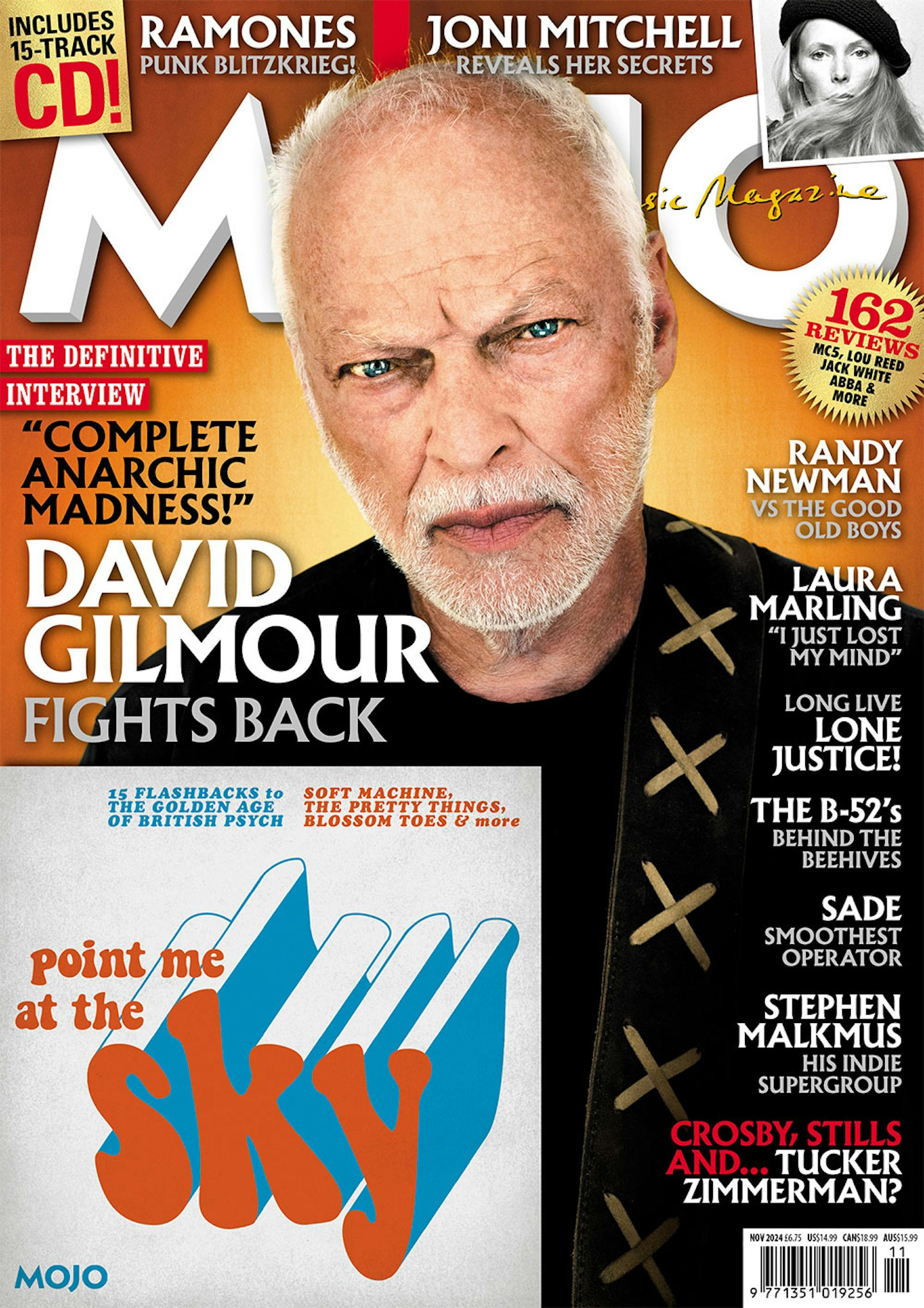Patti Smith
St Paul’s Cathedral, London, 18 September, 2024
Gentle dub reggae plays through speakers by the North Transept inside St Paul’s Cathedral, while ushers show people to their seats. Hosted by nightclub Fabric, this is an unusual collaboration for a 350-year-old place of worship better known for grand royal weddings, funerals and classical concerts. The seating area is packed to its 2000 capacity, as club kids mingle with a rock crowd, and there’s a palpable sense of anticipation.
Patti Smith has been to the UK a few times this summer, playing atmospheric, historic venues like the Brighton Dome in June, and Somerset House in July – but St Paul’s Cathedral is surely her most impressive setting yet.
The stage is set on the altar in the middle of the dome, with spare amber lighting that contrasts with the soaring, ornate gold-plated beauty of the nave. Moroccan-Canadian support act Faouzia paves the way with soothing femme soul pop, and then Smith enters, looking regal with her long silver hair, black jeans and boots. She smiles at the crowd. “There’s a big full moon outside tonight. Don’t forget to look up.”
Tonight, she’s accompanied by the Patti Smith Quartet, which includes Tony Shanahan on bass and piano, drummer Seb Rochford, and her son Jackson Smith on guitar. She keeps the pace simple and measured, a wise move in a cavernous venue where each echo can hover in the air for eleven seconds.

Starting with spoken word lines from the poem Cry Humanity: “Blessed are the children who will rebuild our world”, she moves into the tribal, hypnotic chant of Easter’s Ghost Dance, standing ramrod straight, the only movement her occasional fluttering hand gestures. “Shake out the ghosts,” she advises the audience, and everyone obliges, grinning and shaking out their hands.
Smith is in a good mood tonight, clearly entranced with the venue’s history. She tells stories between songs, how that afternoon she went into the enormous crypt and found the font. She noted that St Paul's architect Wren also designed the same font at St James's Church, Piccadilly, in which William Blake was baptised. This, of course, segues into into My Blakean Year from 2004’s Trampin’, with Smith’s voice bold and bright against the quiet strum of guitar. As the song builds, the guitars create a low, rumbling echo that envelops the space. This effect continues with her version of Bob Dylan’s Man In The Long Black Coat. Subtle, careful arrangements – like Shanahan’s plangent notes on the grand piano – become huge and resonant as they float to the cathedral walls.
Although there is a devotional aspect to Smith’s music, it never becomes portentous. The band play with a light touch, Shanahan and Jackson looping round each other with Fairport Convention-style folk rock guitar, for instance, while Rochford goes for delicate jazz brushwork on drums. Smith, meanwhile, introduces each song with a self-deprecating air. “I did a terrible thing,” she says, waving a sheet of paper crammed with lyrics, “I brought the wrong glasses.” She begins to sing Dylan’s A Hard Rain’s A-Gonna Fall, squinting at the words, but it’s obvious she knows them anyway, and she invites the crowd to sing along. The response is a little muted, partly because there’s a younger portion of the audience who might not know the song, but also because of Smith’s performance, the way she transforms this iconic protest anthem into a searing prayer.

By now she has really hit her stride, turning Trampin’’s Peaceable Kingdom and Beneath The Southern Cross from 1996’s Gone Again into deep incantations. She wrote the former in memory of pro-Palestinian activist Rachel Corrie, killed in 2003 by an Israeli armoured bulldozer. Tonight, Smith talks about lighting candles in the cathedral for loved ones, how these songs are also “remembrance for all the departed, and a song to life.” With a defiant shift of gear, Smith then launches into Pissing In A River, dedicating it to the poet Sylvia Plath. She has switched into ‘70s Patti – ribald, ragged and elemental. While summoning up that raw garage rock energy, she creates something even bigger and more joyous, becoming the rock and roll celebrant. When she performs Because The Night, the song is less about personal desire, more about inclusion and the universal. “Because the night belongs to us,” she sings, with emphasis, before moving to the natural finale People Have The Power from 1988’s Dream Of Life. By this point, everyone is standing up and dancing, aware of the charged moment. “Use your power,” Smith intones, “to vote…to strike…USE YOUR VOTE!”
Even though the lights come up promptly for the 10.30 curfew, the crowd is clamouring for more, rapturously clapping Smith as she and the band exit the stage. An unusual collaboration on paper perhaps, but St Paul’s has been her perfect place.
SETLIST:
Cry Humanity (poem)
Ghost Dance
My Blakean Year
Man in the Long Black Coat (Bob Dylan cover)
Nine
Work (Charlotte Day Wilson cover)
A Hard Rain’s A-Gonna Fall (Bob Dylan cover)
Peaceable Kingdom
Beneath The Southern Cross
Pissing In A River
Wing
Because The Night
Encore:
People Have The Power
The latest issue of MOJO is on sale now! Featuring our exclusive interview with David Gilmour, Joni Mitchell, Ramones, Laura Marling, Randynewman, Stephen Malkmus' The Hard Quartet, The B-52's and more. More info and to order your copy HERE!

Photos: Benedict Priddy
